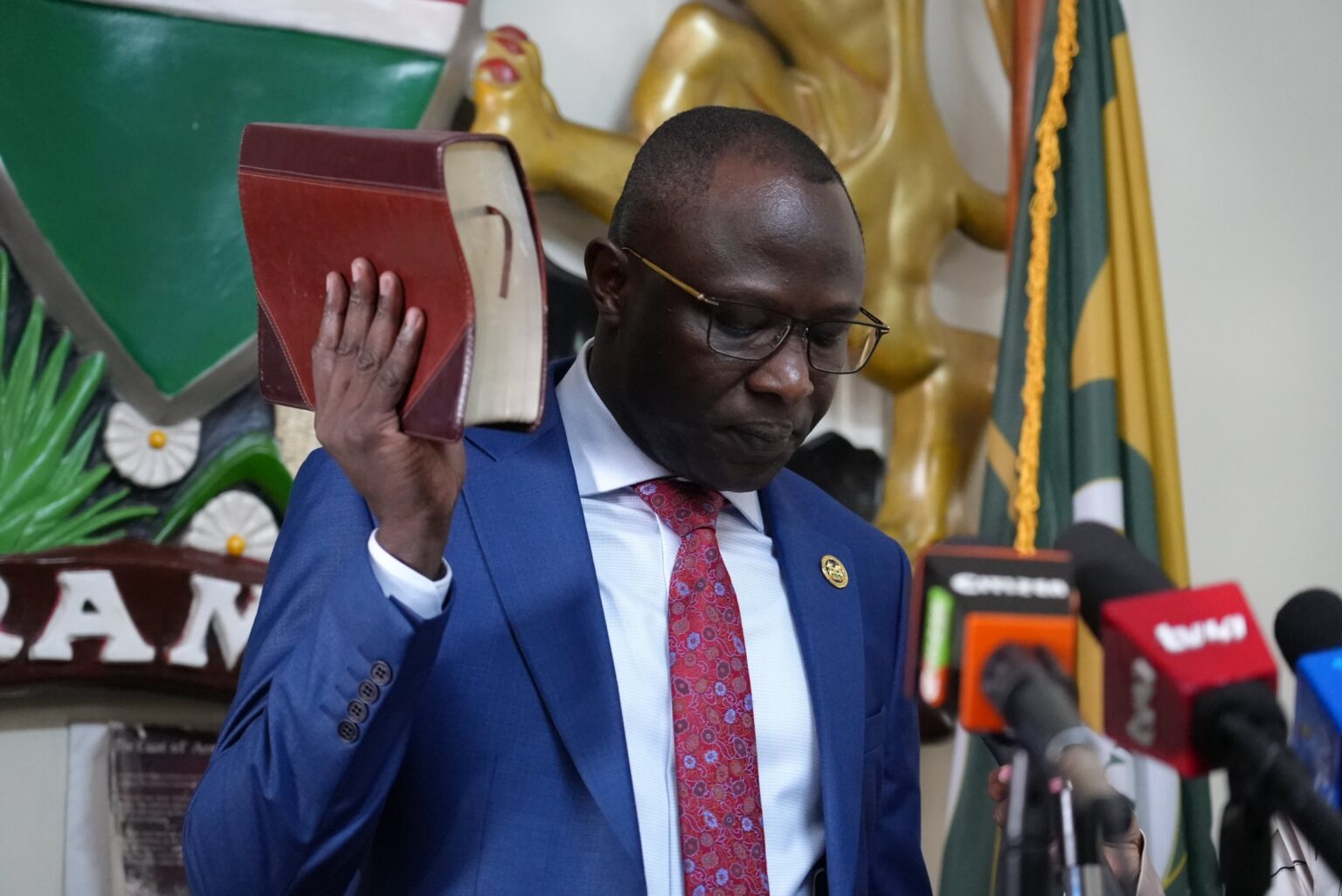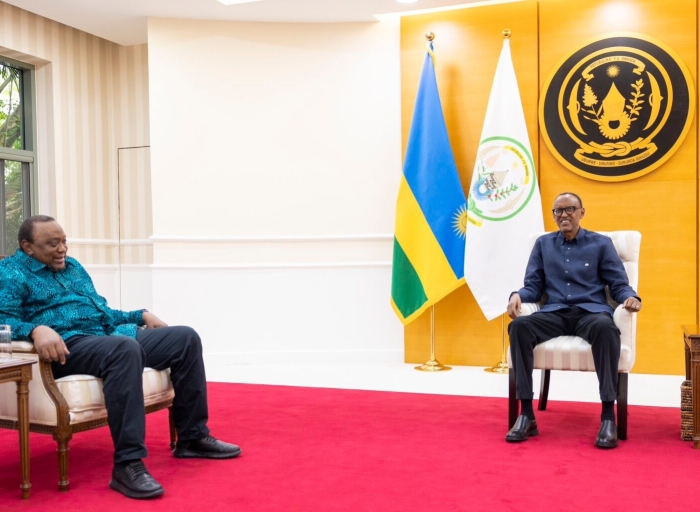With a new team finally at the helm of Kenya’s Independent Electoral and Boundaries Commission (IEBC), attention now shifts to the Commission’s ability to undertake a constitutionally required but long-delayed boundary delimitation process before the 2027 General Election.
The newly appointed Edung Ethekon-led Commission was officially sworn in on Friday following the resolution of a legal petition that had delayed their inauguration. Chief Justice Martha Koome presided over the swearing-in, following a High Court directive requiring President William Ruto to regularize two controversial gazettements that had temporarily halted the process.
However, concerns are mounting over whether the IEBC has enough time and resources to carry out its critical mandate of redrawing electoral boundaries—a process dictated under Article 89 of the Constitution. The law stipulates that constituency boundaries must be reviewed every 8 to 12 years, with completion at least one year before a General Election.
Speaking earlier this year, National Assembly Speaker Moses Wetang’ula warned that the prolonged delay in reconstituting the Commission could make it nearly impossible to meet this legal deadline.
“We may have lost the window to undertake this critical task ahead of the next polls,” Wetang’ula stated during a parliamentary retreat in Naivasha.
Financial Hurdles Threaten Execution
Even if the timeline could be salvaged, IEBC is facing a crippling funding shortfall. The Commission had projected a minimum requirement of Ksh 7.2 billion for the delimitation exercise. However, the 2023/2024 national budget allocated only Ksh 4.53 billion—falling short not just for this task, but for other urgent operational needs.
In budget hearings, the Justice and Legal Affairs Committee (JLAC), led by George Murugara, flagged the lack of funding as a major constitutional risk.
“We haven’t been given any money for boundaries delimitation. If you don’t do this, we have no clue what the courts will do,” Murugara cautioned.
Breakdown of the IEBC’s budget needs includes:
- Ksh 1.1B for staff wages
- Ksh 0.6B for equipment
- Ksh 1.3B for legal fees
- Ksh 0.4B for ICT infrastructure
- Ksh 1.2B for public education
- Ksh 1.2B for communication and logistics
- Ksh 1.2B for post-registration voter activities
In addition, the Commission has pending legal bills amounting to Ksh 2.6 billion, dating back to 2013—including costs from the 2022 presidential petition.
Demographic Adjustments as a Stopgap
In the face of limited time and funding, Speaker Wetang’ula suggested that IEBC could pursue demographic adjustments within existing constituencies instead of creating new ones.
“The only realistic option now is internal demographic redistribution,” he said, emphasizing the need for Parliament to support the Commission’s efforts moving forward.
Rebuilding Public Trust
The new team—comprising Chairperson Edung Ethekon, Vice Chairperson Fahima Abdallah, and commissioners Ann Njeri Nderitu, Moses Alutalala Mukhwana, Mary Karen Sorobit, Hassan Noor Hassan, and Francis Odhiambo Aduol—faces a dual challenge: executing a constitutionally essential exercise with insufficient funds, while restoring public faith in an institution long plagued by credibility issues.
Chief Justice Koome, in her address during the swearing-in ceremony, urged the Commission to uphold the principles of integrity and transparency.
“Our electoral history is marred by violence and contested outcomes. The country is crying out for integrity, transparency, and accountability,” she said.
Conclusion
As the 2027 General Election looms, the IEBC must urgently balance legal timelines, budget realities, and public expectations. Whether the newly constituted team can meet this high-stakes moment remains to be seen—but time is running out.



